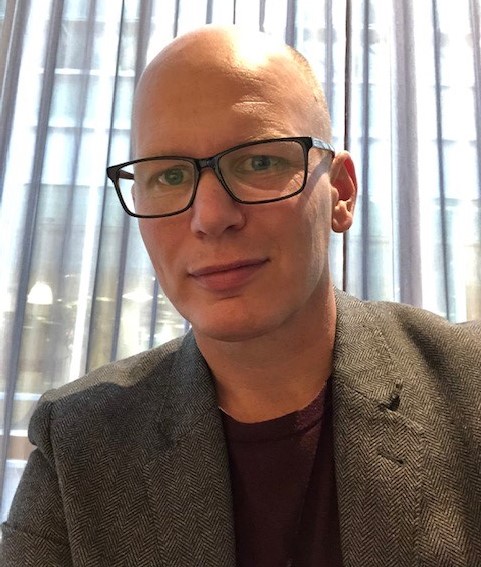Accurate efforts with the help of precision health
Precision health is about enabling innovation to make more accurate efforts to promote health. Here, Sweden has good prospects of taking global leadership. Smart use of data to build knowledge about individual conditions and cross-border co-creation are the keys to success.
Hello there Anders Brinne. You are area manager for Vinnova's area Sustainable precision health. What is it about?
It is about creating more accurate and equal methods for promoting health and well-being, as well as for preventing, diagnosing and treating disease.
Today, almost all healthcare resources are invested in diagnostics and treatment. There are great opportunities to save money and give more people a life in health if we can change, have a holistic perspective and work more preventively. Then it is not just about medical interventions, but above all about adapting our lifestyle, our physical and social environment and our behaviors so that we promote health.
With today's technology, we can collect data that enables more individualized interventions, both to promote and prevent, diagnose and treat - interventions with higher precision. It is about data about our bodies and genes, but also data about our lifestyle, how we move, what we consume and about our environment. The data can be used to understand why we get sick, and form the basis for more accurate, perhaps even tailored efforts to keep us healthy, or treat us in the right way and at the right time if we get sick.
Why is Vinnova making the investment?
We face a number of complex challenges in the field of health and life science. More and more people are suffering from lifestyle-related diseases and, in step with globalization, health threats are increasing in the form of pandemics and antibiotic resistance. In recent decades, we have also seen steadily rising healthcare costs and increasing inequality in society, where vulnerable groups have poorer health. As an industrial nation, Sweden has long been successful in life science. However, we are losing ground in certain areas, such as the implementation of clinical trials, which means, among other things, that patients in Sweden have to wait longer to take part in new medicines and medical technology products.
At the same time, we in Sweden have many strengths that mean that we are well placed to take global leadership by investing in precision health. We have been early with the digitalisation, and have access to large amounts of structured data linked to health, lifestyle and environment that could be used to develop more accurate health interventions. We also have healthcare at the forefront of international affairs, and we have world-class infrastructure and research and innovation environments. Last but not least, we have a population with high confidence in research, and who are curious and happy to adopt new solutions.
What does Vinnova want to achieve?
Our ambition is for Sweden to be an international leader in precision health. We must be a nation that exports innovative solutions, and that attracts foreign investments and talent. We also want Sweden to be a pioneer in creating conditions for the inhabitants to live a life in health.
To succeed, we need to start from the challenges and strengths we have as a nation. The responsibility for the health of the inhabitants is spread over the state, regions and municipalities. Knowledge and ideas are often created within academia and civil society, while the business community provides many of the products and services. Cooperation and co-creation is therefore a key to success with our goals.
Another important key to success is a cohesive system for health analysis, where different data sources can be used to build knowledge about how individual conditions affect health. Here, too, many different actors involved. Several authorities need to work together to develop the laws that today hinder innovation based on the use of different types of data, nationally and internationally.
Recently, the area's first call for proposalsopened: Innovation environments in precision health, tell me more?
We want to see actors who work together to directly or indirectly contribute to the individual's conditions for increased health and well-being being used and improved in an equal and sustainable way. It can be collaborations with aim to develop and introduce new accurate methods for diagnosis and treatment, or new methods for more accurate prevention. It can also be about enabling initiatives, such as initiatives for making health data available and analyzing, developing and implementing welfare technology, biotechnological tools, incentive structures, business models and policy development.
Who is the call aimed at?
We look forward to receiving applications from collaborations between participants from at least three different sectors of society. We will fund those who want to make an ambitious long-term effort to address one or more of the challenges I describe, and who also contribute to international luminosity.
We attach great importance to the applications being linked to existing investments and resources, so that we avoid building parallel structures and creating silos.
Questions?
Team hållbar precisionshälsa
Last updated 24 March 2021
Page statistics

